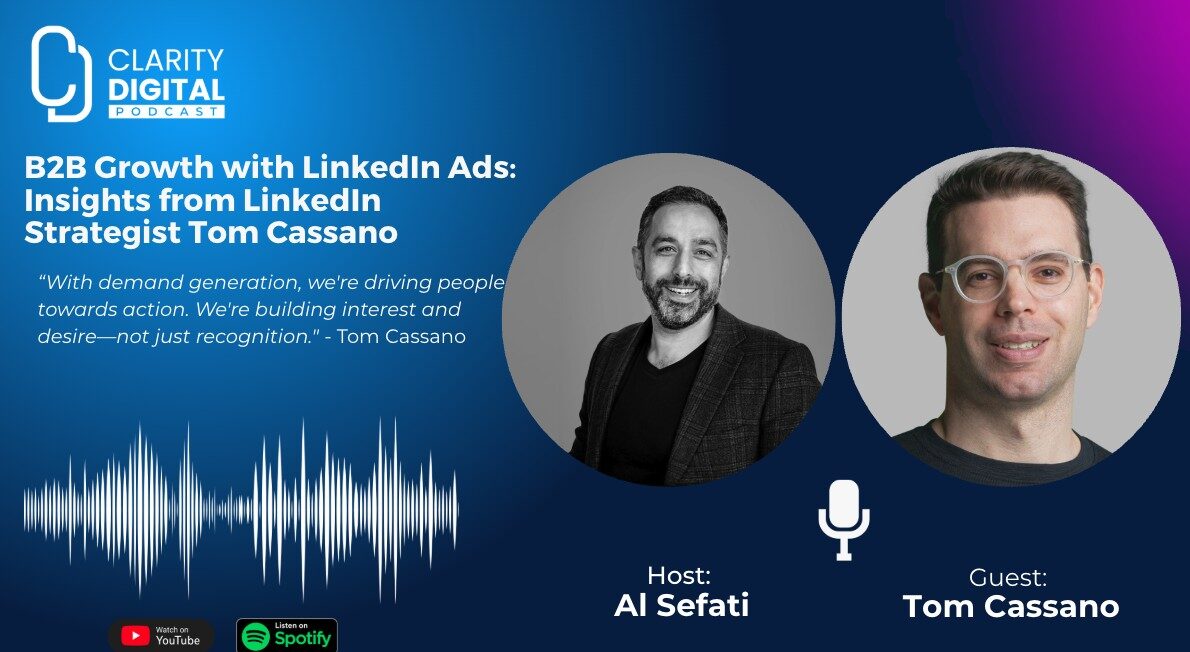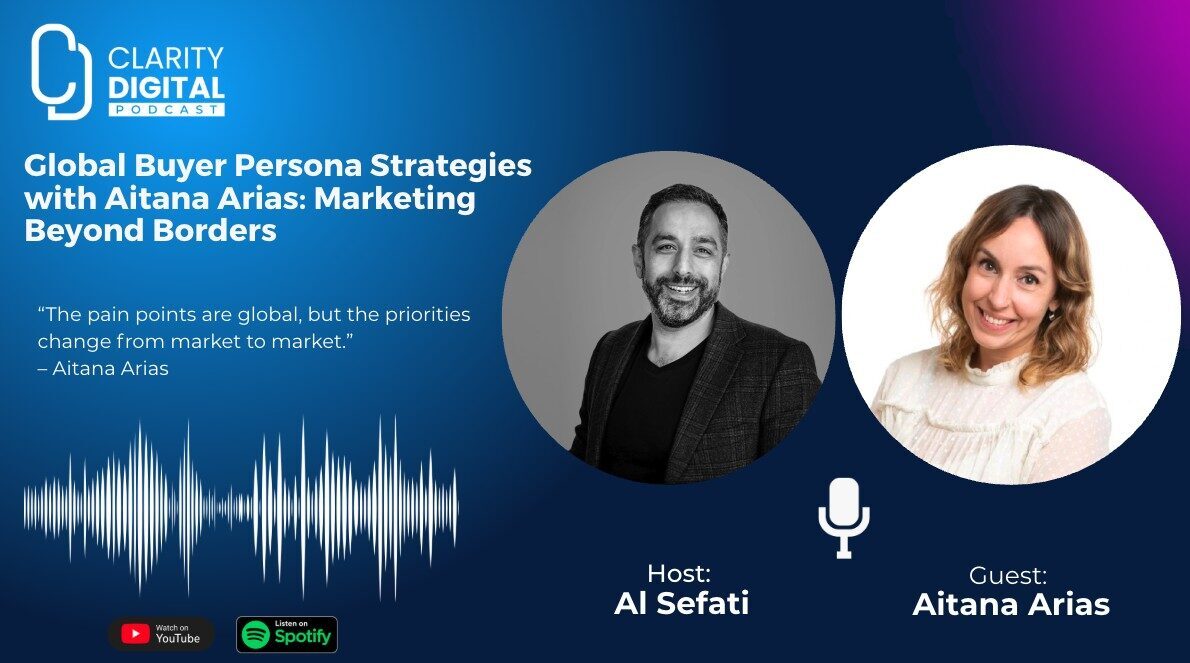In a recent episode of the Clarity Digital Podcast, Tim Ash, a pioneer in neuromarketing and author of Unleash Your Primal Brain, shared his invaluable expertise on how understanding human psychology can transform modern marketing strategies.
With over two decades of experience, including helping brands like Google and Nestlé generate over $1.2 billion in documented value, Tim broke down the principles of neuromarketing, a field grounded in evolutionary psychology. He explained how marketers can use these insights to create campaigns that resonate deeply, all while staying ethical.
Key Takeaways from the Episode
- Neuromarketing Fundamentals
Neuromarketing applies evolutionary psychology to understand what drives decision-making. Tim emphasized that successful marketing starts with understanding human behavior and the universal psychological triggers that influence our choices. - The Importance of Ethical Persuasion
While neuromarketing offers powerful tools, Tim stressed the importance of using them responsibly. He shared examples of how unethical tactics, such as addiction-driven designs, can harm both consumers and brands in the long run. - Why Timeless Principles Matter
Tim cautioned against getting lost in the latest tools and trends. Instead, he urged marketers to focus on durable principles, such as the psychology of fear and reward, which have stood the test of time. - Using AI as a Tool, Not a Crutch
While AI has revolutionized marketing, Tim explained that its value lies in supporting creativity rather than replacing it. He recommended using AI for brainstorming and editing while letting humans handle the core storytelling and strategy. - Cross-Cultural Marketing Challenges
Tim also discussed the importance of understanding cultural nuances in international campaigns, noting that while psychological principles are universal, their application can vary significantly across regions.
Actionable Advice for Marketers
- Focus on creating campaigns that address both the pain points (fear) and the rewards (positivity) of your audience.
- Use AI strategically to enhance efficiency, but ensure your content maintains a human touch.
- Ground your marketing in customer psychology rather than just relying on metrics or technology.
About Tim Ash
Tim is a globally recognized thought leader in digital marketing, neuromarketing, and conversion rate optimization. As the author of Unleash Your Primal Brain and a sought-after speaker, he continues to inspire marketers to embrace the psychology behind consumer behavior to drive results.
For more insights, visit Tim’s website at https://timash.com and check out his book Unleash Your Primal Brain at https://primalbrain.com.
Final Thoughts
This episode of the Clarity Digital Podcast serves as a masterclass for marketers looking to balance cutting-edge technology with timeless psychological principles. By focusing on what truly drives human decision-making, marketers can create campaigns that connect, engage, and convert like never before.





